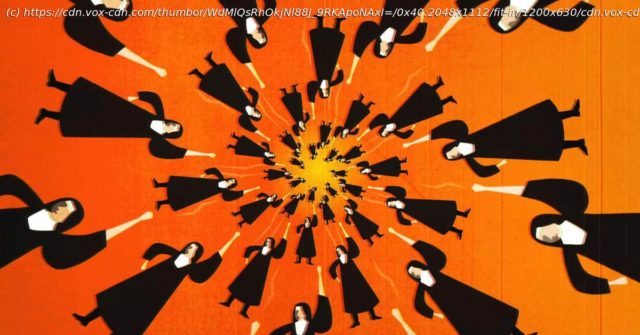The best nonfiction movies from Sundance 2021.
The crop of documentaries that premiere at the Sundance Film Festival is always wide-ranging, both in style and in content. And this year’s selections were no exception, even if the 2021 festival was an unusual one, having largely migrated to digital platforms. They ran the gamut from dramatic explorations of refugees’ experiences to funny and heartbreaking looks at American high schools to experimental films about technology’s effects on our lives. The world is a wide, wide place, and documentary filmmakers are committed to exploring it, celebrating it, and warning us not to take it for granted. Here are the 15 best documentaries I saw at Sundance — and how you, too, can watch them in the months ahead. All Light, Everywhere We undeniably live in a surveillance society. Cameras are ubiquitous, from body cameras on cops to drone-enabled cameras that capture views from above to the cameras we all hold in our hands every day. But what do cameras miss? And do they really give us a more objective view of reality? That’s the question Theo Anthony (Rat Film) tackles in All Light, Everywhere, a sprawling essay film about “blind spots” in the technologies we trust (or mistrust) to keep us safe and the illusions they too often depend upon. Watching All Light, Everywhere is informative, but more importantly, it’s an experience — and a sobering one. How to watch it: All Light, Everywhere is awaiting US distribution. At the Ready At Horizon High School in the border town of El Paso, Texas, students have the option — just as they do in 900 other Texas high schools — to join a “law enforcement” vocational track. At the Ready follows a group of such students through a year in their lives, gently unearthing the roots of their enthusiasm for a future as a DEA agent or border patrol officer. The film wisely probes the complex intersection of race, politics, law enforcement, and adolescence, showing how the school-to-cop pipeline in America is constructed early in the lives of not only these teenagers but also thousands of others. It’s also a hopeful film, demonstrating how today’s high schoolers are engaged with and listening to rhetoric on a national scale — and how they retain the ability, unlike so many adults, to think for themselves. How to watch it: At the Ready is awaiting distribution. Captains of Zaatari Two Syrian best friends, Mahmoud and Fawzi, are teens stuck in the Za’atari Refugee Camp in Jordan. They love playing football. They dream of playing professionally. And when recruiters for Syrian Dream — a team of young footballers who are also refugees — show up, they are ready to spring into action. Director Ali El Arabi chronicles their efforts to play their way out in Captains of Zaatari, a thrilling sports documentary that underscores the high stakes of the chance these young men have to play football. But more importantly, it’s a look into the lives of refugees and the ways the world sees them. Mahmoud proclaims that refugees don’t need pity; they need opportunities. And that message resonates throughout the film. How to watch it: Captains of Zaatari is awaiting distribution. Cusp is a little staggering and incredibly beautiful. It centers on three teen girls in a Texas military town and one summer in their lives, but it’s not a joyride. Directors Isabel Bethencourt and Parker Hill only gradually reveal their subject: the pervasiveness of sexual assault in not just the girls’ lives, but also in the lives of their entire age cohort. They talk obliquely about the older men — often friends of their parents — who molested them when they were children. They discuss rape with painful familiarity. It’s to Cusp’s credit that there’s still a sense of magic and possibility throughout the film, as if the girls have some hope for their futures. Bethencourt and Hill’s observational style means these moments are woven into their subjects’ lives; they skillfully avoid painting the girls one-dimensionally as victims by letting them be their full smart, messy, laughing selves. But Cusp makes it clear that sexual assault is a problem of culture, not of individuals — and that the fault lies with generations that don’t take action to change it. How to watch it: Cusp is awaiting distribution. Flee Animation as the main medium in a documentary is still rare, but Flee uses it to great effect.
Home
United States
USA — Cinema 15 groundbreaking, unsettling, joyous documentaries to look for this year






